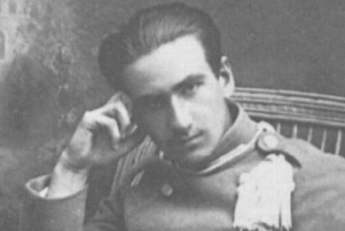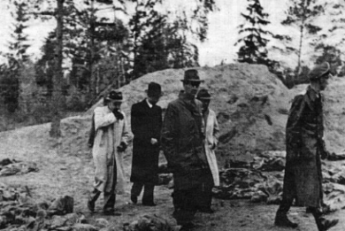
Testament of Józef Mackiewicz
On August 23, 1951, in London, Józef Mackiewicz wrote his first testament. In his will, he stated that he leaves everything that belongs to him or will belong to him in the future, only to his wife Barbara Toporska-Mackiewicz. He confirmed this testament while in Munich in 1962, adding – “to my beloved wife.” After three years, Józef Mackiewicz renewed his will, noting that the house in Czarny Bór was owned by her and bought with her money. “Everything I have, owned and will from now on, especially the literary fees due and the rights to all my books, which I have written and possibly will write, I am going to leave to my wife Barbara Toporska. I would also like to emphasize that the house in Czarny Bór has always been her property and bought with her own money”. The will was additionally written in German language and confirmed by attorney Siegfried Kuhn. Józef Mackiewicz died on January 31, 1985.
Three months after the death of her husband at the oncology clinic in Bad Trissl in Bavaria, Barbara wrote her will, in which she stated that all copyrights from her husband, Polish writer Józef Mackiewicz, as well as her own, are passed on to Nina Karsov-Szechter, the owner of the “Kontra” publishing house located in London. Barbara donated the remains of the family book collection to Nina Kozłowska (translator and Polish community activist in Munich).
At the end, Barbara added: “While my husband Józef Mackiewicz was still alive, it was agreed with the Polish Museum Rapperswil, Switzerland that it would take over our archives, i.e. manuscripts, correspondence, etc., under its perpetual care. The papers may be of interest to today’s and future Polish philologists”.
In accordance with the wishes of the Mackiewiczs, the archive was closed for twenty years and only in 2005 was it tidied up and available for scientific research. It was no coincidence that the Mackiewiczs chose a place to store their legacy. Re-established in 1975, the museum continued the 19th-century tradition of the former institution of Polish political emigration in politically neutral Switzerland, collecting documentation of emigrants. Swiss legal regulations, which ensure the protection of private files for the period of 20 years, were also very important for the Mackiewiczs.
Since 1994, there has been a dispute over the legacy of Józef Mackiewicz. The writer’s daughter, Helena Mackiewicz, claims that the entire legacy should belong to her. Her argument is a letter received in 1982, in which father Józef Mackiewicz gives her the rights to national editions by letter. However, the letter did not survive because, as she herself claims, she burnt it during the martial law period for fear of being searched, because the letter mentioned people from the underground.
Doubts are raised by the daughter’s claim that “the father wrote all letters on the typewriter”, while Mackiewicz’s three wills, written for Toporska, were handwritten. The court also confirmed that a handwritten will must be handwritten. Therefore, the daughter lost the court in 2008 for the right to publish works by Józef Mackiewicz in Poland.
Translated by Joanna Zawalska







